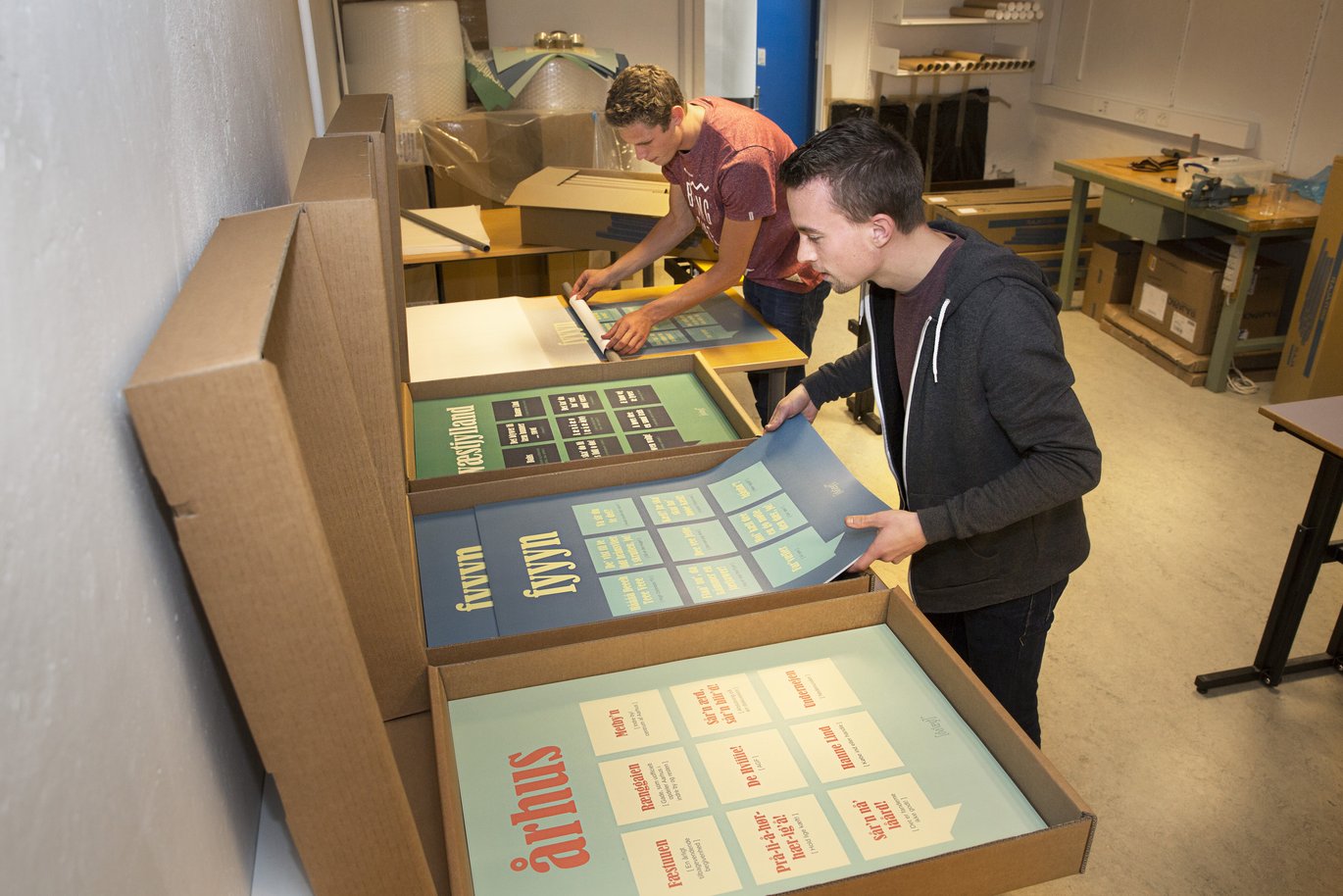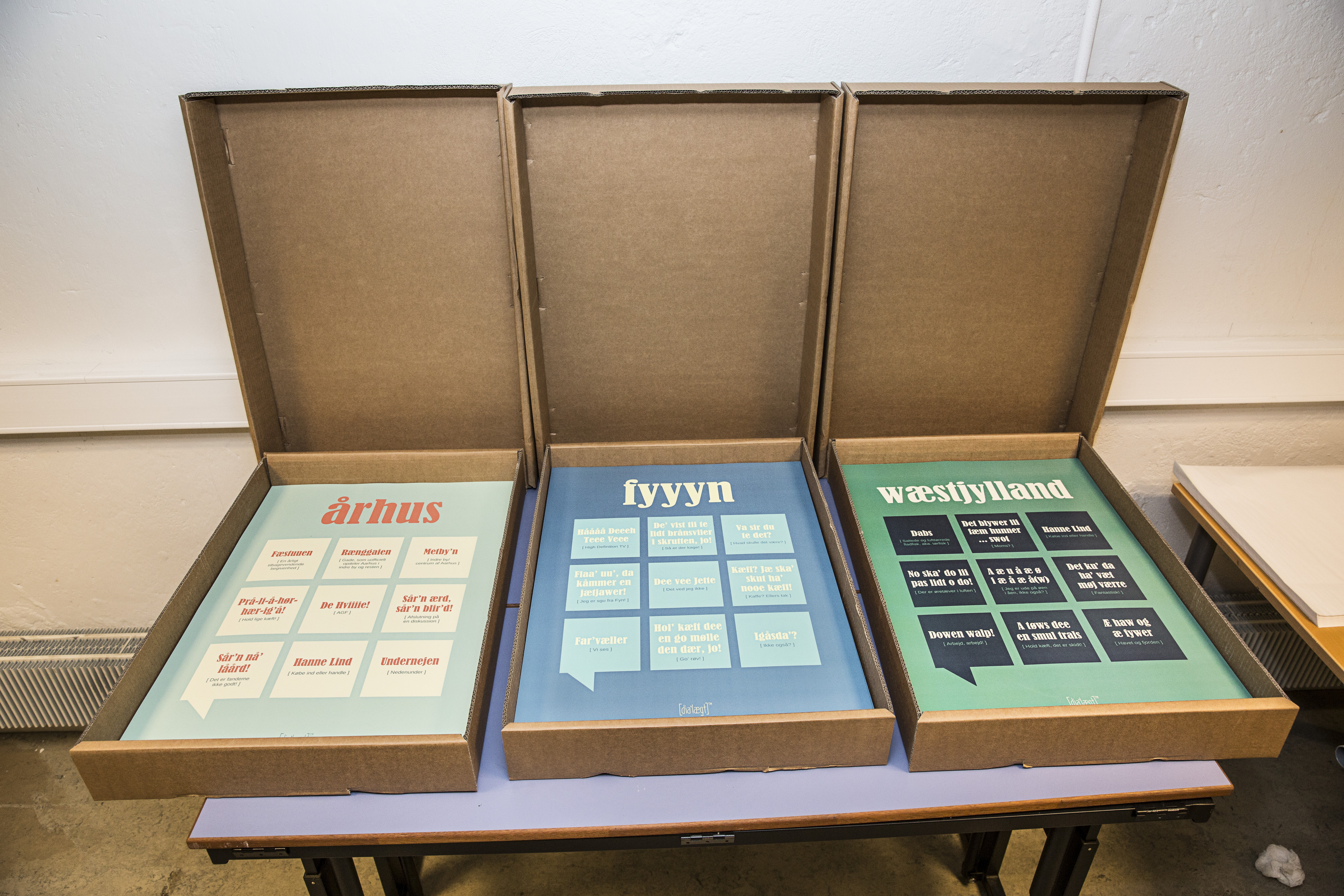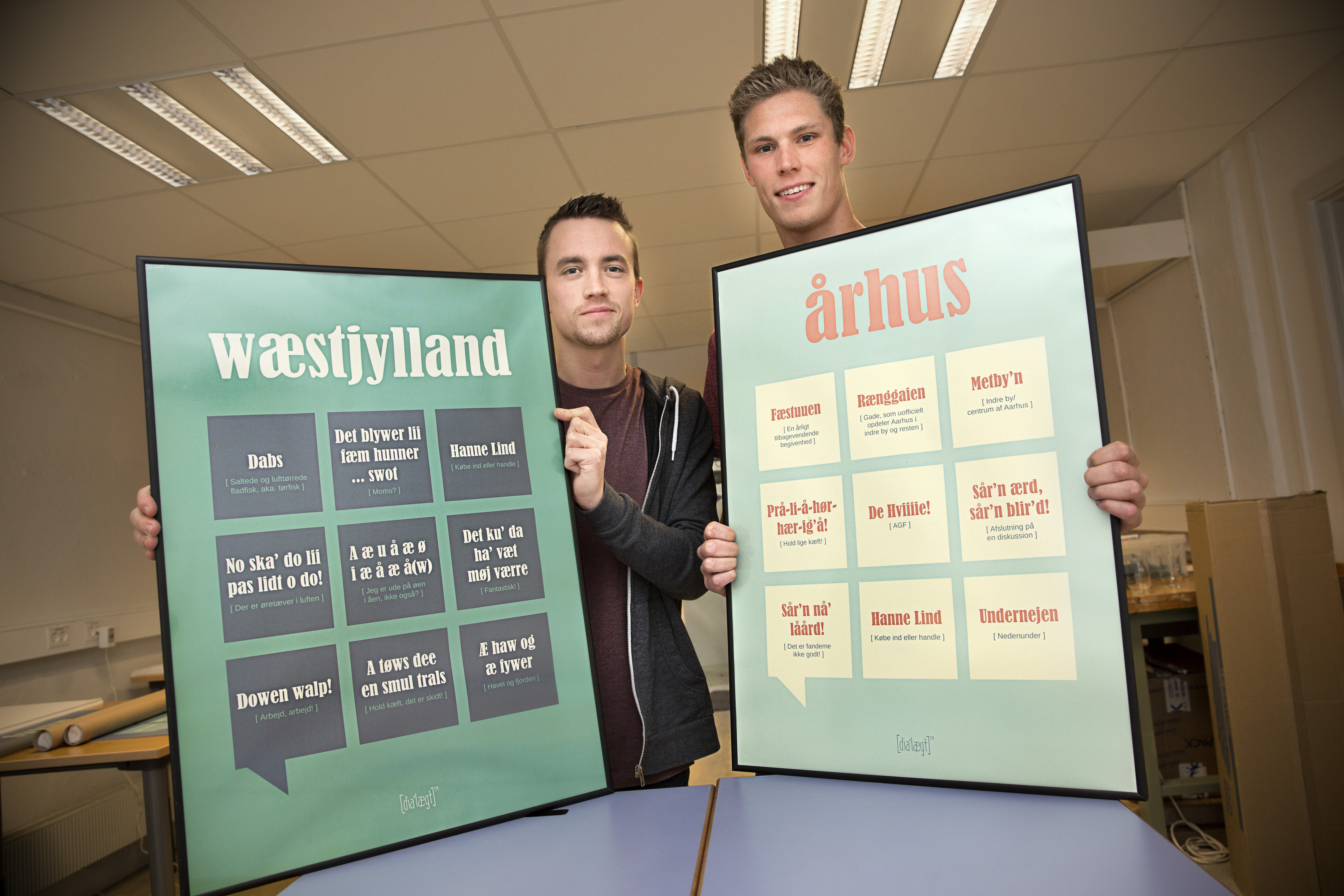»Det ku’ ha’ wær’t møj wærre«
Perhaps you’ve noticed them. The posters with jargon and dialect from Western Jutland (like the one above) or Aarhus, which even Danes have to stop and think about. You can see them all over Facebook and in many shops, and they have been thought up and designed in a little student office at AU.



The men behind the poster company [dia’lægt] are the two astrophysics students Andreas Helbo Beck and Nikolaj Lykke Viborg. They have long wished to turn their hand to entrepreneurship during their studies, but just lacked the right idea. That arrived a day where they by chance realised how different their own dialects actually were, and the company was established in August.
"We hadn't noticed before, but all of a sudden we could just hear it. After that we could hear dialects everywhere," says Andreas, who grew up in Aarhus and is therefore “really, really excited” about the success of the newly established company. While Nikolaj, who comes from Bøvlingbjerg just outside Lemvig in Western Jutland, says with a strong local accent that: "Det ku’ ha’ wær’t møj værre.” (“It could’ve been much worse,” ed.).
They believe the success of the posters is down to the use of dialect playing on something that can be identified as local and, not least, humorous.
"Language actually says a great deal about who we are," says Andreas.
Help from a linguist
During their studies the two astrophysicists were far more engaged in complicated calculations and frequency analyses of astroseismic time series than words, phonetics and aesthetics. They therefore found some external expertise to help with both poster design and content.
"We began by talking to a couple linguists here at AU, but they mostly specialised in old dialects and referred us instead to linguist Michael Ejstrup from the Danish School of Media and Journalism. He has helped us a lot with writing the different sayings in a way that makes the dialect clear and easy to read," explains Andreas.
They also receive a lot of input via Facebook, where people give them tips about local words and sayings and generally want to see new dialects used on the posters.
The carrot at the end of the tunnel
Andreas and Nikolaj are so captivated by their work in the company that they have had to plan when they will write their Master's theses, and when they will be allowed to do company work. The plan is written-up on a huge whiteboard in the student office side by side with business plans and calculations. But they both acknowledge that it is not always followed to the letter.
"I have to force myself to write my Master's thesis," says Nikolaj.
"Yes, and being able to concentrate on our company is the carrot at the end of the tunnel," adds Andreas.
The two students are writing separate Master's theses, though within the same field. Andreas must submit his Master's thesis on 18 November, while Nikolaj hopes to submit before Christmas and has 1 January as his deadline. Neither of them is planning to find work as astrophysicists once they graduate. Both hope to have a future within entrepreneurship.
"Both of us want to create something for ourselves. All those black holes and stars are quite unreal. Our degree programme is a niche that only benefits a few people," says Nikolaj while Andreas nods in agreement beside him.
The sense of mystery has disappeared
Both began the degree programme driven by a fascination of the universe's mystery. However, as the universe and the stars have become formalised during their studies, so has the sense of mystery disappeared.
"After five years of studying, things aren’t quite as charming and exciting any longer. There’s too much in-depth information. Stars aren’t incomprehensible – now they’re a ball of gas that you can explain with equations and formulas. So now it’s time to finish the degree programme and then go and do something else entirely,” says Nikolaj.
Seeing the company grow is fun
That said, they both believe they have been able to use knowledge from their astrophysics degree programme when starting a business from scratch. In particular, the analytical approach that they have learned, along with the ability to quickly grasp complex material.
The plan is complete the Master's theses and then use the company as a playpen to learn as much as possible about running your own business.
"We’ll run the company until it’s not interesting for us anymore and just becomes daily work. What’s fun is seeing it grow," says Andreas.
Both are also looking forward to Christmas this year, as they’re expecting a lot of cardboard poster tubes to lie under a lot of Danish Christmas trees this year.
Translated by Peter Lambourne

